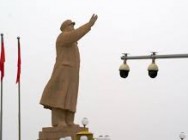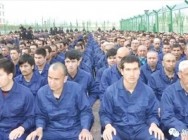Last Minute

- Conflict and Alliance: The US and China: A Centennial Dance: A Century of Relationship from 1900 to 2024
- CHINA RELATIONSEAST TURKESTAN PROBLEM AND TURKEY
- FRONTLINE China Undercover
- Elimination of “Uyghur Counter-Revolutionary Officials” in Academic Fields—Exact Quotes Translated from a Mandarin Audio File
- In Push for Trade Deal, Trump Administration Shelves Sanctions Over China’s Crackdown on Uighurs
- Dalai Lama’s 60th Anniversary Symposium: İlshat Hassan speech in English and Chinese
- Uyghur Detainees from Xinjiang ‘Placed in Nearly Every Prison’ in Shandong Province
- Shahrezad Ghayrat, Unrepresented Women
- Uighur Americans Speak Against China’s Internment Camps. Their Relatives Disappear.
- Rozinisa: The true story of the Uyghur girls in the prison

-

Conflict and Alliance: The US and China: A Centennial Dance: A Century of Relationship from 1900 to 2024
-

CHINA RELATIONSEAST TURKESTAN PROBLEM AND TURKEY
-

FRONTLINE China Undercover
-

Elimination of “Uyghur Counter-Revolutionary Officials” in Academic Fields—Exact Quotes Translated from a Mandarin Audio File
-

In Push for Trade Deal, Trump Administration Shelves Sanctions Over China’s Crackdown on Uighurs
-

Dalai Lama’s 60th Anniversary Symposium: İlshat Hassan speech in English and Chinese
Is ISIS a Threat to China?

China has a large Muslim minority, the Uighurs who number 10-20 million. The area they live in they call East Turkistan or Xinjiang, a region three times the size of France.
East Turkistan lies in northwestern China and borders Kazakhstan, Kyrgyzstan, Russia, Mongolia, Pakistan, India and Tibet.
In 1933, in a rebellion against the central Chinese government, East Turkistan declared independence. Eleven years later, equipped with an army of 40,000 soldiers and supported by Russia, they began fighting for their lands against China – even reaching 10 miles from what they called their capital Urumqi. Stalin told them to stop because of the bigger diplomatic picture and forced the Uighurs to negotiate with the Chinese.
Five Uighur leaders traveled across China to Peking and subsequently to Kazakhstan. Chinese media reported the five died in a plane crash. Subsequently, the East Turkistan culture minister signed an agreement to create an autonomous region within China for the Uighurs. This was seen by Muslims living in China as treachery.
Since 1955, the area has enjoyed autonomous status but many argue it has never had any form of independence from Beijing. They say the army, police, language and so on are all Chinese. They also point to effort by the Chinese to change the demographics of the area by moving in Chinese “settlers.”
Ahmatjan Osman, who resides in Toronto, Canada, is the president of the “East Turkistan Government in Exile” and seeks independence for East Turkistan .
The other main Muslim organizations in East Turkistan are the World Uyghur Congress (WUC), which fights for human rights of Muslims in the area, and the East Turkistan Education and Solidarity Association (ETESA), which is designated a terrorist organization by China (because China claims they want to create a caliphate).
Clarion Project’s Arab Affairs Analyst spoke with Osman about the threat of ISIS in China and specifically in East Turkistan.
Clarion Project: So far, there have not been any attacks by ISIS in China or East Turkistan. Are the rumors true that now that ISIS is running from the Middle East, they plan on moving eastward towards China and specifically to East Turkistan?
Osman: I strongly believe that among the Uighur Muslims in ISIS, there are double agents working for the Chinese government. I believe these double agents are the senior officials in the group.
If you look at the video that ISIS released (see below), where ISIS says that they want to “spill blood in China” and “paint China in blood,” those kind of declarations—I believe that the Chinese hand was involved. Why? The video was made by the local Uighur ISIS group, not ISI itself.
That’s why I think there is infiltration of China and its agents into the group
Clarion Project: Why would the Chinese government want to stir up ISIS in East Turkistan?
Osman: China wants to tighten its grip in East Turkistan and over the Uighur people. It wants to magnify the ISIS terror threat in East Turkistan. That’s why it is interested in these kind of declarations by ISIS.
China is also aware of the international community. They need an excuse to turn this area into an occupied military zone. The “threat” of ISIS and Islamist terrorists is a great excuse.
The reason is the New Silk Road (One Belt, One Road) project of China. East Turkistan is the meeting point, the connection. This project is crucial to the economy and trade of China.
East Turkistan is the meeting point between China and Europe as well as between China and the Middle East. That’s why China needs stability and security in this area and that’s why the government wants to move in more security forces to this area.
The area itself is not only strategic for China but rich with minerals and oil. So the government is making this up this threat from ISIS to bring in more military forces and tighten its grip on this area.
Clarion Project: Do you think there any real threat from ISIS in China?
Osman: I don’t believe there is really a serious threat or even a minor threat to China or East Turkistan from ISIS – not at all.
RELATED NEWS











